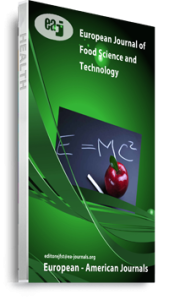A well-developed immune system of the organism, which, among other things, arises as a result of a healthy lifestyle, is a prerequisite for a healthy and quality life. Natural food products, primarily honey and other bee products, greatly contribute to the proper development of the body’s immune response to the harmful effects of foreign substances. Honey and other bee products are a valuable and rich source of biologically active substances. They have been used for centuries in traditional medicine, due to their wide range of antibacterial, antiradical, antioxidant and anticancer effects, as well as their supportive effect in the prevention and treatment of many diseases. Consumption of honey contributes to the improvement of immunity and enriches the human diet with many valuable nutrients and bioactive substances. Bioactive substances, including polyphenols, are organic chemical compounds naturally present in honey. Polyphenols are important secondary metabolites of plants that are transferred to honey along with nectar, pollen or propolis. Several studies have confirmed the immunomodulatory role of the basic phenolic compounds present in honey. For the purpose of our research, a total of 21 samples of honey and 10 samples of alcoholic propolis extract were collected, mostly from the Federation of Bosnia and Herzegovina. Based on the obtained results, it is clear that honey itself is a rich source of antioxidants in the diet, but that the addition of propolis significantly increases its antioxidant power. The addition of propolis to honey significantly increased the antioxidant activity of all analyzed samples. After the addition of propolis, the highest antioxidant activity was again shown by a sample of forest honey from the area of Bihać, Una-Sana Canton (Š5) and its antioxidant activity is 1143.96 µmol Fe (II) / L. The lowest antioxidant activity after the addition of propolis was shown by the meadow sample of honey from Sanski Most, Una-Sana Canton, (L21), 462.71 µmol Fe (II) / L.Based on the presented results, it is clear that after the addition of propolis in the analyzed honey samples there was a significant increase in the concentration of polyphenols by an average of 11.96%.
Citation: Stipe Ćelan, Aldina Kesić, Nadira Ibrišimović Mehmedinović, Aida Crnkić, Almir Šestan (2022) Immunomodulatory Ability of Honey Enriched with Propolis, European Journal of Food Science and Technology, Vol.10, No.1, pp.1-19
Keywords: antioxidant acivity, honey, immunomodulatory, poliphenols, propolis

